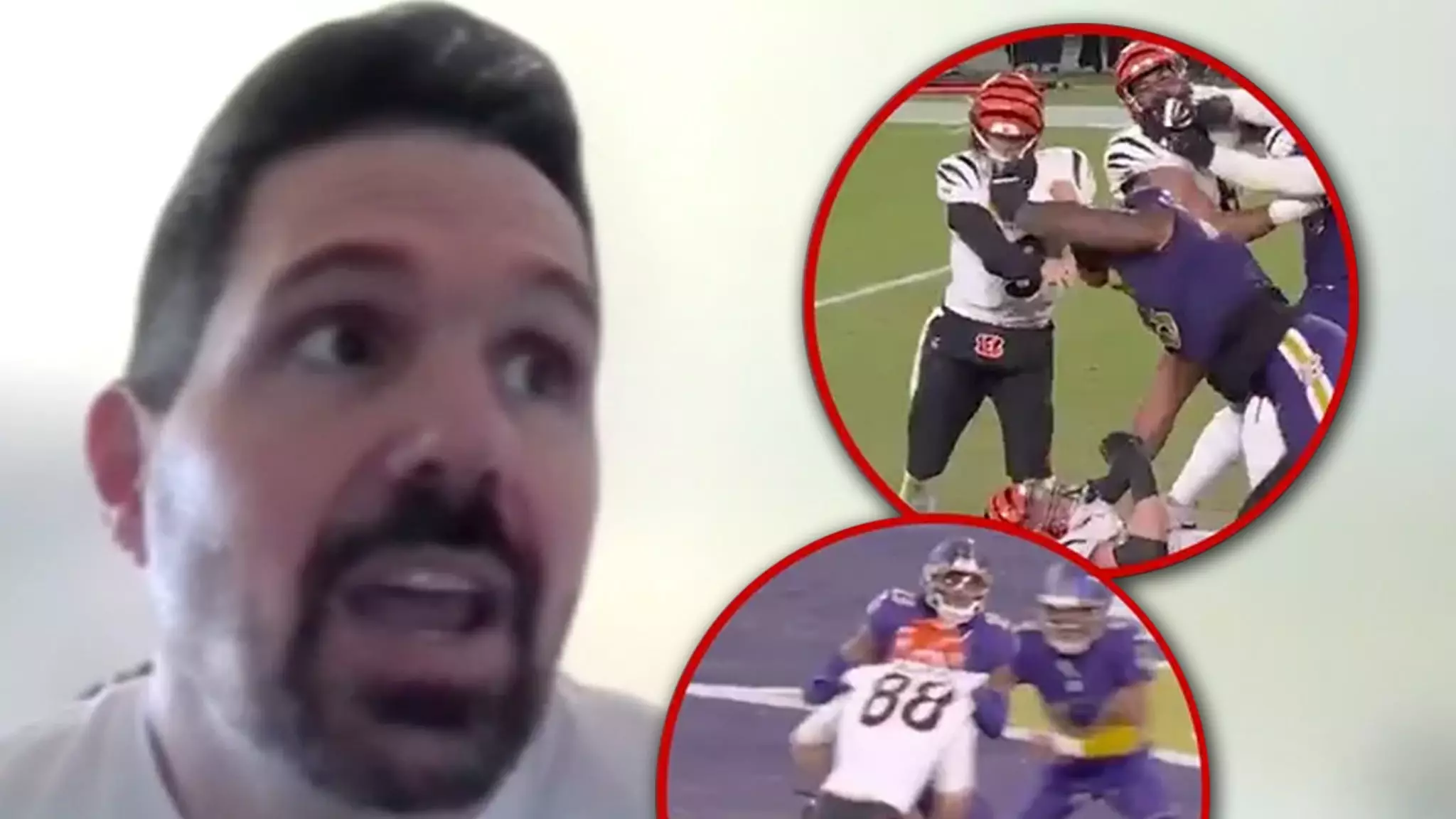In the high-stakes world of the NFL, the integrity of officiating is paramount. Recent events during the Ravens vs. Bengals game have thrown this integrity into question, igniting a firestorm of criticism from fans, players, and analysts alike. Two crucial missed calls during a pivotal moment of the game have left the football community reeling. The aftermath of these blunders not only disappointed Bengal supporters but also raised critical inquiries regarding the officiating process and the corrective measures that can be implemented to prevent such situations from recurring.
The evolution of technology has transformed how sports are officiated over the years, serving as both a boon and a bane. Dean Blandino, a veteran of NFL officiating and now a respected analyst for FOX Sports, voiced a compelling argument for integrating expanded replay into the officiating protocols. Originally, the introduction of replay faced resistance from officials, who feared losing their autonomy and facing constant scrutiny. However, the rapid advancement of technological tools provides an unprecedented opportunity to enhance decision-making on the field. Blandino’s advocacy for these innovations illustrates a growing recognition among officials themselves that leveraging technology could help them achieve a greater degree of accuracy.
Understanding the Human Element
Despite the emphasis on technology, it’s important to acknowledge the human aspect of officiating. Referees are people too—understanding the pressure they face during games is crucial. Blandino conveyed empathy for officials who strive to get every call right, emphasizing that their desire to maintain fairness runs deep. The aftermath of a game can haunt these officials, lending a layer of complexity to the discussion on accountability. It’s not merely about the missed calls; it’s about a shared commitment to the sport that leaves officials feeling as deflated as the teams themselves after critical mistakes.
The delicate balance of competence and accountability plays a significant role in maintaining the standards of officiating in the NFL. Every call and missed call is meticulously graded, which suggests ongoing evaluation is essential for improvement. While this systematic assessment is important, questions arise about the consequences that follow significant officiating errors. Will such missed opportunities influence the careers of the officials involved, or will the leagues emphasize growth and corrective measures instead? The tension between punitive actions and supportive training presents a challenge as the league seeks to maintain the integrity of its officiating crews.
As discussions continue regarding how to avoid future officiating disasters, a collaborative approach seems key. Incorporating feedback from various stakeholders—including players, fans, and coaches—can generate constructive suggestions for improving the process. Moreover, adopting a forward-thinking mentality could transform officiating from a point of contention into a shared goal among everyone involved in the game. If all parties are committed to fostering an environment where mistakes are openly discussed and learned from, the NFL may stand a better chance of ensuring that fans witness a fair, competitive sport moving forward.
The path toward enhancing NFL officiating involves embracing technology while also nurturing the human elements at play. As the league navigates this ongoing challenge, a collective effort will be crucial in reassuring fans, teams, and officials alike that the pursuit of excellence in officiating remains a top priority.

